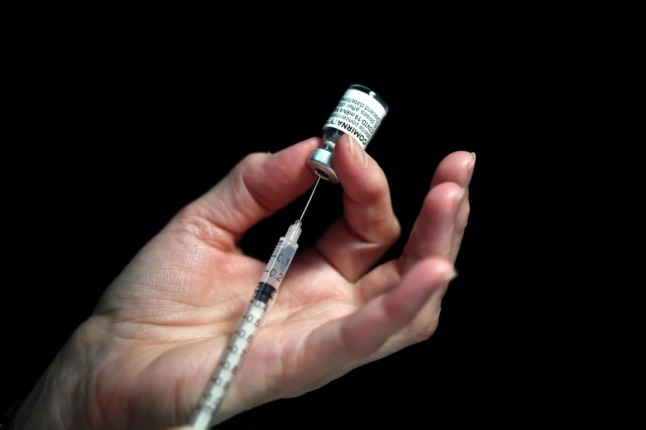The Covid vaccination programme opened up on Tuesday, June 15th to youngsters aged between 12 and 18.
It’s voluntary
Some 11 vaccinations are compulsory for children to register in school in France, but the Covid vaccine will remain a matter of personal, and parental, choice.
No invitations
As with other stages of the vaccination programme, there is no need to wait for an invitation to be vaccinated. Teenagers or their parents can make an appointment, vaccinations of under 18s are done at vaccine centres only, not pharmacists.
Booking is via the same methods as the adult vaccine.
READ ALSO How to book a Covid appointment in France
But an attestation
Under 18s do, however, need an attestation showing they have parental consent to get the vaccine. The attestation is available via your Ameli account or click here. Under 18s cannot be vaccinated without the attestation, other than in exceptional circumstances.
It is ‘a recommendation and not an obligation’ that parents be present at the appointment, says the health ministry. The consent of the person under 18 themselves is not required in writing, but is collected orally during the appointment and the patient will receive clear, age-appropriate guidance.
And a health app
Once fully vaccinated with both doses, youngsters will be able to use their vaccination certificate on the health passport to access larger events like gigs, festivals and sports matches or – from July 1st – travel within the EU and Schengen zone.
From September 30th, the French health pass will be extended to children aged 12-17, meaning teenagers will need to be vaccinated, take a Covid test, or have recovered from Covid in order to access cafés, restaurants, cinemas and other venues.
Government sources have told Le Parisien newspaper that the health pass obligation will only apply from 12 years and 2 months, in order to give children time to get vaccinated after their twelfth birthday. In France, you must wait at least three weeks between doses, and you are considered fully vaccinated one week after your final dose.
READ ALSO How does France’s health passport work?
Pfizer
Pfizer BioNTech is the only vaccine that has been approved in France for use on under 16s, so all teenagers in France will for the moment be receiving Pfizer, which already makes up the vast bulk of doses administered in the French programme.
Moderna has applied to the European Medicines Agency for authorisation for use on under 16s, if this is granted, the French health regulator will also need to give its approval before Moderna can be used for under 18s in France. The AstraZeneca and Johnson & Johnson vaccines are not authorised for under 55s in France, so will not form part of the children’s vaccination programme.
Free
Just as for adults, the Covid vaccine is free for under 18s and – as with adults – children who are not registered in the French health system can get the vaccine if they are resident in France.
READ ALSO What to expect at your vaccine appointment
Why?
In general, children are much less likely to develop the most severe forms of Covid – although there have been rare cases of deaths – and frequently have no symptoms at all.
But French health authorities say it is still important that they be vaccinated and they can spread the illness.
Speaking on TF1, health minister Olivier Véran said that opening up the vaccine programme to under 18s would “accelerate the movement towards collective immunity”.
The other consideration is educational. Although France has had one of the lowest number of school closure days in Europe, education has still been disrupted by the pandemic and a protocol is in place for schools to close classes if there is an outbreak of infection.
Véran hopes that a successful vaccination programme of youngsters over the summer will “avoid having to close “too many classes in high schools or colleges at the beginning of the school year”.



 Please whitelist us to continue reading.
Please whitelist us to continue reading.
Member comments